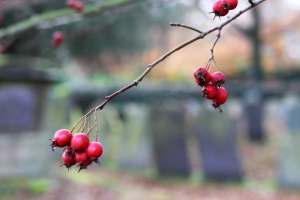 I was muddled in the middle of class –I was explaining the sequence of the day’s tasks, and for just a second, I couldn’t get the words right. The students were patient. There was no teeth-sucking or eye-rolling. They just waited, and I was so thankful.
I was muddled in the middle of class –I was explaining the sequence of the day’s tasks, and for just a second, I couldn’t get the words right. The students were patient. There was no teeth-sucking or eye-rolling. They just waited, and I was so thankful.
“Guys,” I explained, “It’s like there’s a third of my brain that is constantly thinking about trauma–wouldn’t you like to think about trauma?–a third that is thinking about how much I wish this room had windows, and a third that is teaching you.” They smile. Such a good little class, a morning blessing.
At 8:15 this morning, I had them in the hall playing a game I called, “It’s Too Early For This.” The kids stood in a line spelling bee style, and I peppered them with vocabulary questions. It was one of those times that teachers and kids both like–no grades are being taken, there are no high stakes, but “learning is occurring,” so the boxes are all checked.
A class of seniors walking past cackled as I explained, “We are playing ‘It’s Too Early For This.'” Once, they had been my students. Played highlighter basketball, watched the live panda cam, eaten birthday chicken tetrazzini.
They knew who I was.
And, for that moment in the hall, I was her again.
That’s what is most stunning about the aftermath of my father’s death by suicide: how, in his saying goodbye to his life, so many of us also said goodbye to our own. We were as quickly changed. We were forever altered.
I had said goodbye to my life before, so many times.
When adoptions failed.
When I had miscarriages.
When Greg got cancer the first time.
The second time.
When our granddaughter was stillborn.
Every time something was stripped, something was torn, something was taken, I grieved–fully–and then restructured. Reframed what I could. After a point, I didn’t try to make a positive; there was no attempt to rebuild; there was not much of a mission past endurance and survival.
Although I have given up seeking mountaintops, I have stayed steadfast in my search for a liveable space.
There were nineteen months between trauma–between cancer’s “six-surgeries-in-one” and open-heart surgery. (I suppose Greg and the girls might argue that the first few were consumed by recovery and should not be included in the count.)
They were not special months. I went to work, then I went home.
But I knew how to appreciate “the magic of a boring evening at home.” I could walk a few miles while the sun set; sit and read under the drake elm; water the bougainvillea and watch the bees in the wildflowers; pet the feral cats; enjoy a Sausalito cookie at the end of my day.
These were no days of riches.
If you had asked me, “What if this was taken away?” I might have asked you what this even was.
But there is always something to lose.
 The peeling away has most clearly taught me this: we are never grateful enough, we are never mindful enough, we never appreciate what it is that we have.
The peeling away has most clearly taught me this: we are never grateful enough, we are never mindful enough, we never appreciate what it is that we have.
Even if we try, we cannot be.
Because the things the human heart does in the place of loss, in the place of the taking, in the place where things are gone, gone, gone, never to return–well, that empty space is somehow bigger than the place that the beloved initially filled.
There’s an alchemy to it with both things and people: I loved you x, but I miss you 500x.
This is nothing new, this is cliche: absence makes the heart grow fonder, you don’t know what you’ve got til it’s gone. Same old, same old.
But this is different, too: because for those of us who suffer much, who endure continual loss, the looping of sorrows reveals, once more, the need for a Savior, the richness in the promise of heaven.
When I was in high school, I memorized scripture. Not for awards or gold stars or even to please Grandma.
I could say the words of Psalm 103: “As for man, his days are like grass; he flourishes like a flower of the field; for the wind passes over it, and it is gone, and its place knows it no more. But the steadfast love of the Lord is from everlasting to everlasting on those who fear him.”
Once, I could say them. Now, I can believe as well. The wind has passed over me, taking much–and it will come again. But I can say with the conviction of the Psalmist: there is steadfast love everlasting.
There is a place past all this wind.
 Me, to Abby: “How would you start a blog about hope?”
Me, to Abby: “How would you start a blog about hope?” After I wrote “hope” on the index card and my friends and I chuckled, I crossed it out, and I started thinking–why was that my instinct? Why not write “my father’s death” or “our financial and marital struggles” or “the doctor’s mistakes”? Why not start fresh in one of those areas?
After I wrote “hope” on the index card and my friends and I chuckled, I crossed it out, and I started thinking–why was that my instinct? Why not write “my father’s death” or “our financial and marital struggles” or “the doctor’s mistakes”? Why not start fresh in one of those areas?
